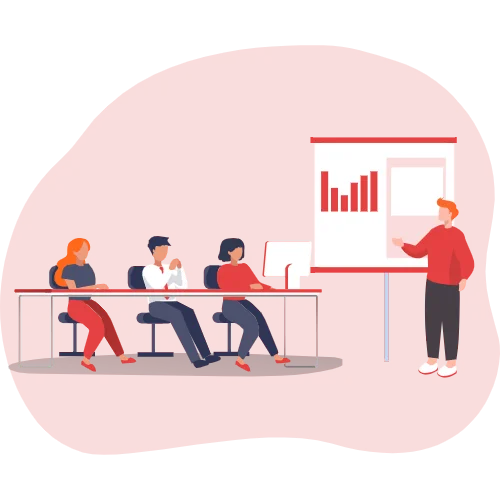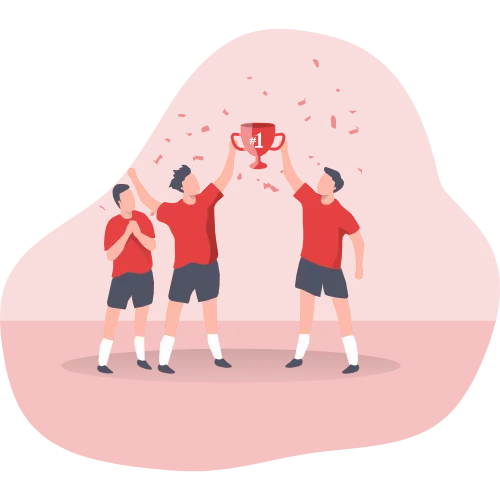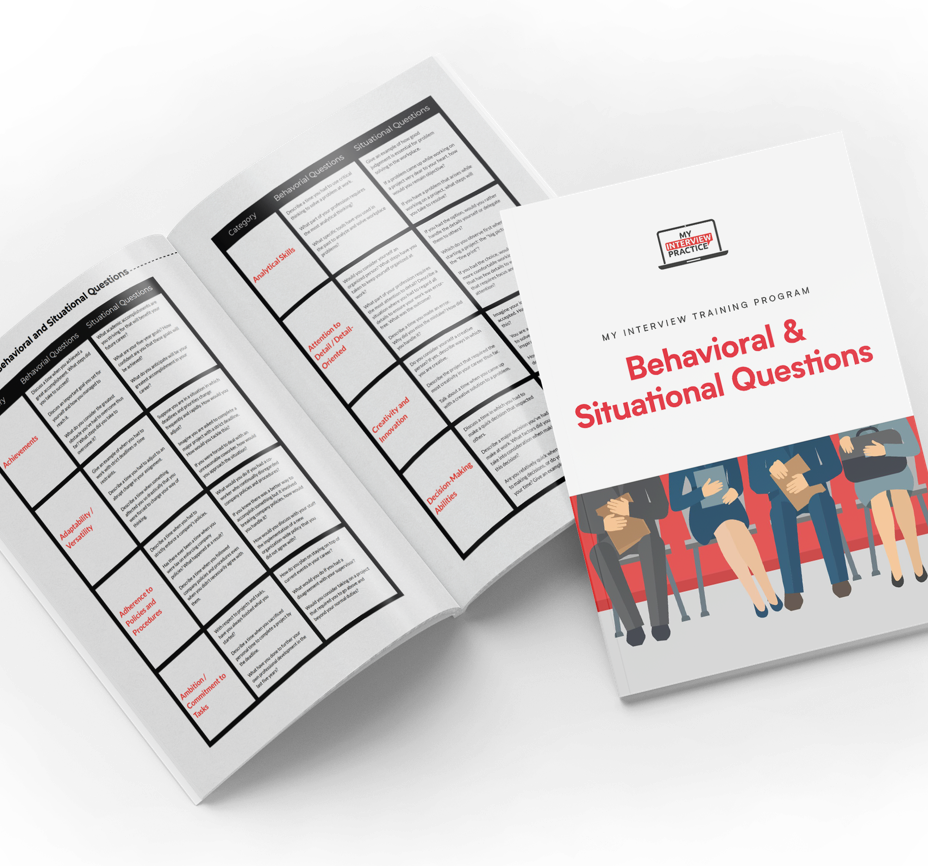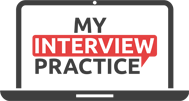How to Answer Leadership Interview Questions

Preparing for leadership interviews means getting ready to share real examples of how you lead, motivate, and manage teams. Hiring managers use these questions to gain evidence that you are capable of a leadership position.
In this article, we’ll explore what leadership questions are, why employers ask them, and how to answer them effectively. We’ll also cover common leadership interview questions (with sample answers) so you can craft your own responses confidently.
Whether you’re applying for a team lead, manager, or executive role, or even interviewing for a position that doesn’t explicitly require managing others, demonstrating strong leadership experience can set you apart. This article explains how to answer leadership interview questions and showcase your leadership style, team management abilities, and valuable leadership examples from your experience.
Understanding Behavioral Leadership Interview Questions
Behavioral interview questions prompt you to recount specific past situations to showcase your leadership approach and how you used communication skills to navigate challenges and achieve organization’s success. The premise is that past performance in leadership roles predicts future performance and reveals your leadership potential in driving your team toward its goals.
Instead of broad queries like “Are you good at leading?”, interviewers ask, “Tell me about a time you led a team through a challenge,” probing competencies such as delegation, motivation, conflict resolution, and strategic planning—all essential for achieving successful outcomes.
Employers use these questions to determine if your leadership style, soft skills, and collaborative approach align with the organization’s success. Anyone can claim to be a leader, but your stories—highlighting teamwork, decision-making, and measurable results—prove you can deliver successful outcomes and contribute to the company’s goals.
Preparing clear, concise examples that tie back to team goals ensures you demonstrate genuine leadership qualities and your ability to drive the organization forward.

Introduction to Leadership
Leadership is the process of guiding and influencing a team or organization towards achieving a common goal. Effective leaders possess a unique set of soft skills, including strategic thinking, communication, and problem-solving abilities.
Key soft skills needed for leadership positions include:
-
Communication skills: Convey goals, active listening, managing expectations, and delivering feedback effectively.
-
Strategic thinking: Anticipate leadership challenges, set a vision, and align resources.
-
Decision-making: Analyze information swiftly and choose the best course of action.
-
Emotional intelligence: Understand and manage your own emotions and those of others.
-
Team building: Fosters collaborative efforts, trust, relationship building, and a shared sense of purpose.
-
Delegation: Assign tasks based on team member strengths and empower team members.
-
Motivation: Inspire and encourage people to achieve their best.
-
Problem-solving: Conflict resolution and implementing creative solutions to solve team concerns.
-
Adaptability: Adjust plans and tactics in response to changing circumstances.
-
Accountability and professional development: Take responsibility for outcomes and learn from successes and failures.
They are able to foster a positive work environment, change team dynamics, and make informed decisions that help achieve success. In a leadership interview, candidates are often asked to provide real-life examples of their leadership skills and experience, demonstrating their ability to lead and manage teams.
To answer leadership interview questions effectively, it’s essential to understand the company’s values and job description, and to be prepared to discuss your leadership style, decision-making process, and experience in team management.
Key Skills and Qualities Employers Look For in Leadership Roles
When answering leadership interview questions, it’s important to highlight the qualities that companies value in effective leaders. While specific needs vary by role and industry, some key leadership skills and qualities almost always come up. Here are a few to keep in mind and weave into your answers:
-
Communication and Listening: Great leaders communicate clearly with active listening. They can convey vision, give feedback, and encourage open dialogue.
-
Team Management and Delegation: Effective leaders know how to be a team leader, assign responsibilities based on strengths, and trust others to get the job done. (This shows your team management skills in action.)
-
Motivation and Team Building: Strong team leaders inspire and motivate their team, whether through recognition, coaching, or creating a positive environment that boosts morale and productivity.
-
Problem-Solving and Decision-Making: Leadership often involves making tough calls and solving problems under pressure. Employers value leaders who can analyze situations, make sound decisions, and resolve issues (like conflicts or project hurdles) calmly.
-
Integrity and Accountability: Good leaders lead by example. Honesty, ethics, and taking responsibility for outcomes (good or bad) are critical leadership qualities that build trust within a team.
-
Adaptability and Resilience: In today’s dynamic work environments, leaders must be flexible and resilient. The ability to adapt to change, learn from feedback, and bounce back from setbacks is highly prized.
-
Empathy and Emotional Intelligence: Understanding team members’ perspectives and needs helps a leader manage individuals effectively. Empathetic leaders can better mentor employees and handle interpersonal issues with tact.
These qualities should shine through in the stories you share. Before your interview, reflect on times you displayed these skills even when not in a leadership position. That way, when asked a behavioral question, you’ll be ready with a relevant leadership example that highlights one or more of these attributes.
Answering leadership interview questions is much easier if you use the STAR method to structure your response. STAR stands for Situation, Task, Action, Result – it’s a formula that helps you tell a concise, focused story with a clear beginning and end. Here’s how to use the STAR method when discussing your leadership experiences:
-
Situation: Start by setting the scene. Briefly describe the context of your example – what was the situation, and why was it significant? (For example, “Our project team was facing a major deadline and our manager had just left.”)
-
Task: Explain your role and responsibility in that situation. What challenge or goal did you (as the leader or team member) need to address? (“As the senior team member, it fell to me to keep the project on track and guide the team.”)
-
Action: Describe the specific actions you took to handle the task or solve the problem. This is the heart of your answer – emphasize the leadership style or strategies you used. (“I organized a quick huddle to redistribute tasks, set up daily check-ins for progress, and stepped in to assist on critical work streams to prevent delays.”)
-
Result: Conclude with the outcome. Whenever possible, quantify it or highlight a positive result. (“As a result, we not only met the deadline but also exceeded the client’s expectations, and upper management praised the team’s resilience.”)
Using STAR ensures your answer is structured and evidence-based. It stops you from rambling or getting lost in details and makes it easy for the interviewer to follow your story. Practice using the STAR format with a variety of leadership scenarios from your past. That way, even if the questions aren’t worded exactly as you expect, you’ll have several polished stories ready to adapt.
Now, let’s delve into some common leadership interview questions. For each question, we’ll look at what the interviewer is really asking and provide a sample answer illustrating how you might respond. Use these examples as inspiration to frame your own experiences in a compelling way.

How to Answer Common Leadership Interview Questions
Here are some examples of leadership interview questions you can anticipate during an interview, the rationale behind them, and an example of how you can respond to them.
1. How would you describe your leadership style?
Interviewers often open with this question to understand your leadership philosophy and whether it fits their culture. In your answer, be honest about your style but also highlight flexibility. Employers appreciate team leaders who are adaptable and can adjust their approach based on the team’s needs.
Example: “My leadership style is collaborative yet adaptable. I set clear team goals and empower everyone with autonomy, fostering open communication. In my last role, I led a marketing team, holding weekly brainstorming sessions to encourage ownership. When needed, I provide hands-on guidance. For example, during a campaign, I coached a junior member to improve their skills, boosting morale and the overall team’s success. I prioritize respect and flexibility to meet team needs.”
2. What are the most important leadership styles or qualities that you possess?
This question allows you to highlight the leadership abilities you feel are key to team success. Rather than rattling off a long list of generic skills, pick a few that are most relevant to the job and back them up with a quick example. Show that you are self-aware and understand what ethical leadership entails, and demonstrate self-awareness about your strengths.
Example: “I value communication, accountability, and strategic thinking. When leading a cross-functional team, I communicated goals clearly during a software rollout. When challenges arose, I took ownership, strategized a phased approach, and held Q&A sessions to ensure clarity. This led to a smooth implementation, with my team praising my transparency. These skills help me guide teams effectively.”
3. Tell me about a time you demonstrated leadership skills in the workplace.
This is a classic behavioral interview question about leadership. It’s open-ended, so you can choose any example that shows you taking initiative or guiding others. The interviewer wants to hear a concrete story of you exhibiting leadership skills to determine whether you are a good leader. Try to pick a scenario that had a positive outcome and showcases qualities relevant to the role you want. Remember to use the STAR format for clarity.
Example: “At XYZ Corp, our project manager left before a client deadline, risking delays and hurting team performance. I stepped up to lead. I held a meeting to reassign tasks based on strengths, set nightly check-ins, and motivated the team with recognition. We delivered on time, earning client praise and management recognition. This showed me I can lead under pressure.”
4. Describe a challenging situation you faced as a leader and how you overcame it.
Here, the hiring managers are looking for your problem-solving skills, resilience, and ability to handle adversity in a leadership role. A “challenging situation” could be anything from a project crisis to a significant change to interpersonal conflicts on your team. Your ideal sample answer should be a story that had a positive resolution, and ideally one that taught you something about being a better leader. Emphasize what you did to turn the situation around.
Example: “During a company reorganization, my team’s morale dropped due to role uncertainty. I held a transparent team meeting to share updates and met individually to address concerns, aligning new roles with their goals. I also provided training resources. Within a month, productivity rebounded, and one team member earned a promotion. Transparency and empathy helped us adapt.”
5. Tell me about a time you had to resolve a conflict within your team.
Interviewers ask this to evaluate how you handle disagreements or tension among team members. They want to see that you can remain fair, calm, and solution-oriented, and that you can mediate without taking sides unfairly. When answering, choose an example that wasn’t trivial – a real conflict, but one you successfully resolved. Focus on the steps you took to address the conflict and how your actions led to a better working relationship.
Example: “Two team members clashed over a client’s workload, disrupting teamwork. I met each privately to understand their views—one felt overburdened, the other micromanaged. In a mediated meeting, I facilitated open dialogue, clarifying misunderstandings. We split the workload fairly and set clear protocols. They later collaborated successfully, improving team communication.”
6. How do you encourage team members during a challenging project or when morale is low?
Interviewers want to see how you inspire teams during tough times, like tight deadlines or low morale. Share specific strategies, such as recognition or fostering teamwork, with an example of team’s success.
Example: “I motivate by recognizing contributions and tracking progress. During a long team project, everyone felt burned out. I introduced weekly shout-outs for accomplishments and a project management tools to visualize progress. This boosted morale, and we delivered on time. Recognizing small wins keeps teams engaged.”
7. How do you handle an underperforming team member?
This question assesses your ability to address performance issues constructively. Show how you identify causes of underperformance and encourage employee development to improve, ideally with an example of a turnaround.
Example: “I seek to understand underperformance causes. A team member missed deadlines due to unclear expectations. In a private meeting, I clarified goals, paired them with a mentor, and held weekly check-ins. Within two months, their performance improved significantly. Empathy and coaching drive improvement.”
8. How do you delegate tasks among your team members?
Interviewers want to ensure you distribute work strategically to empower your team dynamics. Explain your process for matching tasks to skills and providing clear instructions, with a positive outcome.
Example: “I delegate based on skills and growth opportunities. For a product launch, I assigned data analysis to an analyst eager to present, coaching them for the final meeting, and market research to a detail-oriented member. Clear instructions and autonomy led to a successful launch, with team members gaining new skills.”
9. Tell me about a time you had to lead a project under a tight deadline. How did you ensure everything stayed on track?
Your response should showcase your ability to manage time and lead under pressure. Include an example of organizing tasks and maintaining focus to meet a deadline.
Example: “I led a client project with a four-week deadline, half the usual time. I created a prioritized task roadmap, delegated based on expertise, and held daily check-ins using a Trello dashboard. When a snag occurred, I redistributed tasks. We delivered early, maintaining quality, proving planning and communication are key.”
10. How do you provide feedback to your team members?
When answering, emphasize your tactful, growth-oriented feedback approach and open communication. Share an example where your feedback led to measurable improvement.
Example: “I give timely, specific feedback in one-on-ones, balancing praise and constructive advice. A team member’s reports had errors due to rushing. I praised their speed, highlighted errors’ impact, and suggested proofreading breaks. After a month, their accuracy improved. Supportive feedback fosters growth.”
11. How do you handle receiving feedback or criticism about your leadership?
Your answer should reflect openness to professional growth and learning from others. Provide an example of using feedback to enhance your leadership approach.
Sample Answer: “I welcome feedback to improve. After a project, a team member noted my hands-on help felt like micromanaging. I thanked them, reflected, and adjusted by giving more autonomy while staying supportive. This built trust, showing me feedback strengthens leadership.”
12. Can you give an example of a time you had to make a difficult decision as a leader?
When asked this question, outline your thoughtful decision-making process. Include an example showing responsibility and empathy in a tough situation.
Example: “As operations manager, I halted a costly team project misaligned with goals, despite team passion. After analyzing costs and consulting leadership, I explained the decision transparently, redirecting efforts to core projects. Performance improved, reinforcing the need for objective, empathetic decisions.”
13. How do you mentor or develop your team members?
Your response should highlight your commitment to employee growth. Share an example of coaching or providing opportunities that led to professional development.
Example: “I mentor by aligning tasks with career goals. A junior analyst wanted project management experience, so I involved her in planning meetings, let her lead a sub-project, and enrolled her in training. Within a year, she was promoted, showing hands-on coaching builds strong teams.”
14. Tell me about a time you led by example.
Interviewers seek proof that you model the behavior you expect from your team. Provide an example where your actions inspired others, demonstrating leadership integrity and improving team dynamics.
Example “During a tight software release, I joined my stressed team in testing tasks and stayed late, maintaining positivity. We met the deadline, and team members said my involvement motivated them. Leading by example inspires commitment.”
Final Tips
When answering questions on leadership, you should reflect on diverse experiences showcasing various skills and rehearse STAR-structured stories aloud. During the interview process, listen carefully, pause if needed, and adapt stories to fit questions. If you lack a specific experience, describe your approach, but prioritize real examples.
In your next leadership interview, be authentic and admit challenges or lessons learned. This shows self-awareness and leadership potential. Employers value honesty and enthusiasm for growth. With preparation, you’ll confidently showcase your leadership story and stand out as a capable leader.
The key to nailing your interview – practice, practice, practice.
As with anything, practice makes perfect. The most common ways to practice are with in-person mock interviews or a list of questions. While these options are a great place to start, they can leave a lot to be desired.
Practicing with In-Person Mock Interviews and Question Lists
One way to get valuable interview practice is to set up in-person mock interviews. Unfortunately, they can be somewhat inconvenient. You have to find someone to conduct the mock interview, and schedule a meeting every time you want to practice.
Question lists offer a much more convenient way to practice interviewing. Unfortunately, they do little to recreate actual interview pressure. In a real interview you’ll never know what’s going to be asked and this is exactly what can make interviews so stressful.
Interview Simulators – The best of both worlds.
With interview simulators, you can take realistic mock interviews on your own, from anywhere.
My Interview Practice offers a dynamic simulator that generates unique questions every time you practice, ensuring you're always prepared for the unexpected. Our AI-powered system can create tailored interviews for any job title or position. Simply upload your resume and a job description, and you'll receive custom-curated questions relevant to your specific role and industry. Each question is crafted based on real-world professional insights, providing an authentic interview experience. Practice as many times as you need to build your confidence and ace your next interview.
| List of Questions |
In-Person Mock Interview |
My Interview Practice Simulator |
|
|---|---|---|---|
| Questions Unknown Like Real Interviews | |||
| Curated Questions Chosen Just for You | |||
| No Research Required | |||
| Share Your Practice Interview | |||
| Do It Yourself | |||
| Go At Your Own Pace | |||
| Approachable |
Our interview simulator uses video to record your responses, and recreates the pressure you would feel in a real interview. This also allows your to see how you perform and perfect your responses. You can then share your responses with colleagues and mentors so that you can get valuable feedback.
Get the free training guide.
See the most common questions in every category assessed by employers and be ready for anything.
Get the Guide





